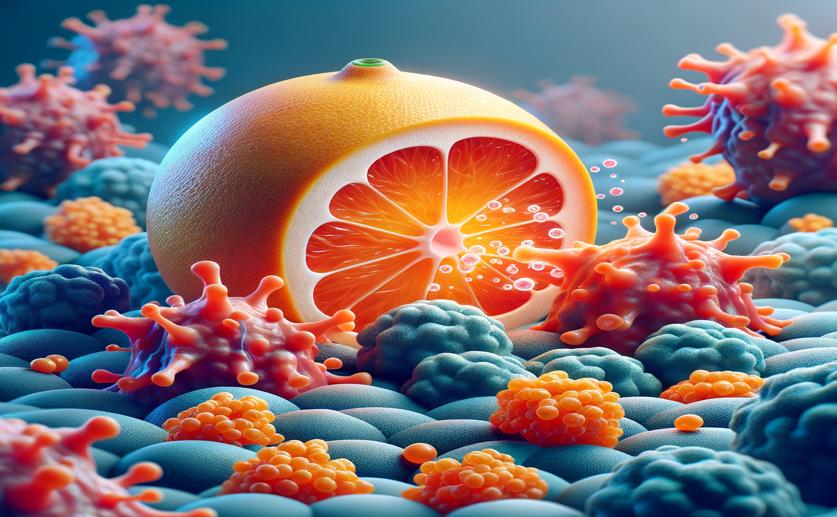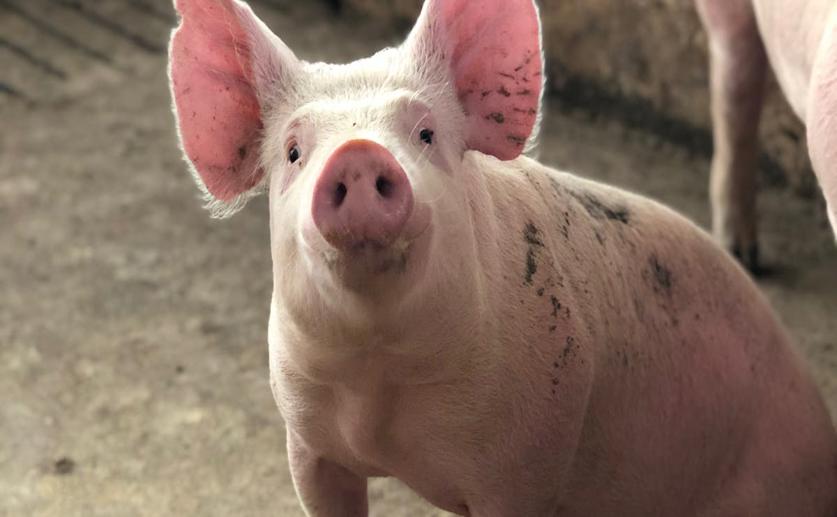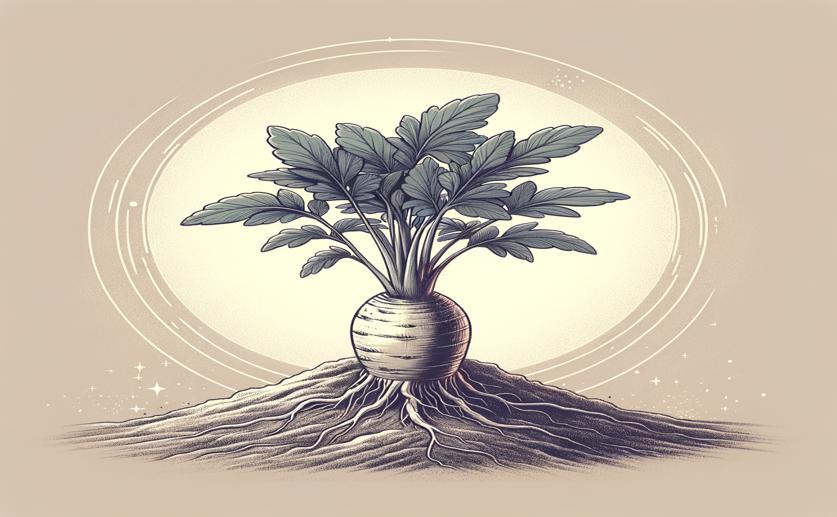
Health News
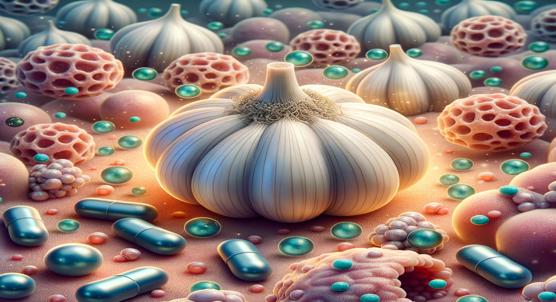
 26th July, 2024
| Jenn Hoskins
26th July, 2024
| Jenn Hoskins
Garlic Nanoparticles Boost Cancer Immunotherapy by Activating Gut Immune Cells
A study from Soochow University reveals garlic-derived nanoparticles can boost γδ T cells, enhancing their cancer-fighting abilities and improving the effectiveness of existing immunotherapies. This innovative approach could revolutionize cancer treatment.

 25th July, 2024
| Jim Crocker
25th July, 2024
| Jim Crocker
How Hatching and Body Weight Affect Growth, Gut Health, and Microbes in Chickens
Early feeding in on-farm hatched chicks fosters better gut microbiota, leading to improved growth and uniformity in broiler flocks. Optimizing hatching practices can enhance production efficiency and reduce metabolic diseases, addressing key poultry industry challenges.
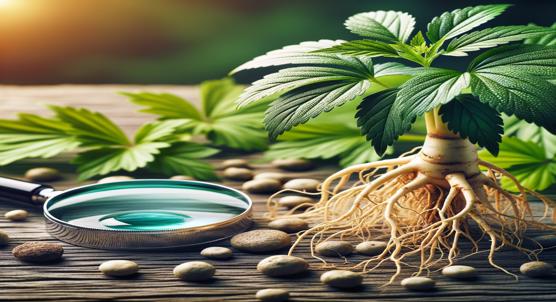
 25th July, 2024
| Jenn Hoskins
25th July, 2024
| Jenn Hoskins
Natural Compounds in Ginseng Studied for Early Huntington's Disease Prevention
Recent research suggests Panax ginseng compounds like schizandrin and protopanaxadiol may help treat early Huntington's disease by interacting with dopamine receptors, potentially offering new therapeutic avenues. Further studies are needed to confirm these promising findings.
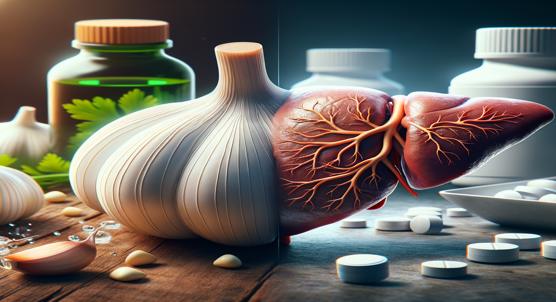
 24th July, 2024
| Jim Crocker
24th July, 2024
| Jim Crocker
How Garlic Could Help Treat Alcohol-Related Liver Disease: A Comprehensive Study
Recent research from Shanxi Medical University reveals garlic's potential in combating alcoholic liver disease (ALD). By targeting inflammation and promoting alcohol metabolism, garlic's active compounds could offer a natural, effective treatment for ALD.

 24th July, 2024
| Jim Crocker
24th July, 2024
| Jim Crocker
How Asparagus Helps Protect the Brain from Fluoride Damage
Tianjin University finds Asparagus officinalis (ASP) can mitigate brain damage from fluoride exposure. ASP's antioxidative and anti-inflammatory properties reduce brain injury, dental fluorosis, and bone damage, offering a promising treatment for fluorosis-related health issues.

 24th July, 2024
| Jenn Hoskins
24th July, 2024
| Jenn Hoskins
Cancer Risk from Chemicals in Food, Water, and Vegetables
A study from the University of Calabar reveals that PAH levels in water, oils, vegetables, and barbecued foods are mostly within safe limits, but surface water and grilled foods may pose higher cancer risks. Continuous monitoring is essential for public health.
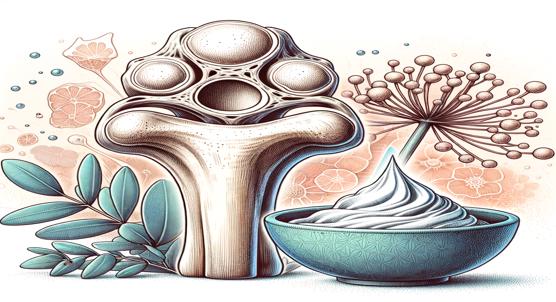
 23rd July, 2024
| Jim Crocker
23rd July, 2024
| Jim Crocker
Healing Cartilage with Boswellia Extract in Special Gels to Reduce Inflammation
A new study introduces a composite hydrogel with Boswellia serrata extract to treat osteoarthritis. This innovative material reduces inflammation and promotes cartilage repair, offering a dual approach to managing OA symptoms and improving joint health.
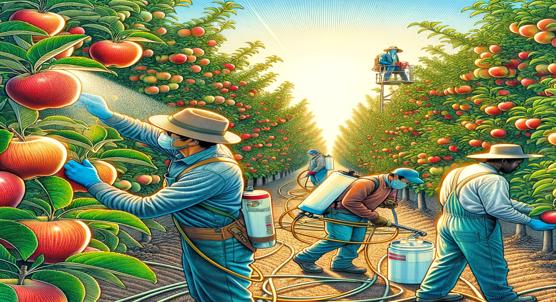
 23rd July, 2024
| Greg Howard
23rd July, 2024
| Greg Howard
Measuring Skin Exposure to Pesticides for Workers in Apple Orchards
A University of Bordeaux study reveals significant variability in captan residues on apple orchards, emphasizing the need for better safety protocols to protect agricultural workers from potential health risks, including cancer, due to pesticide exposure.

 23rd July, 2024
| Jenn Hoskins
23rd July, 2024
| Jenn Hoskins
Bay Leaf Eye Drops and Their Impact on Cataract Formation and Oxidative Stress
Laurus Nobilis eye drops show promise in preventing cataracts by reducing oxidative stress in a study on rabbits. This non-surgical, antioxidant-rich treatment could be a cost-effective alternative in regions with limited access to cataract surgery.

 23rd July, 2024
| Jenn Hoskins
23rd July, 2024
| Jenn Hoskins
Long-term Air Pollution Linked to Mental Well-Being, Depression, and Anxiety
A Portuguese study found no significant link between long-term exposure to PM10 air pollution and mental health issues, contrasting with earlier research. It highlights the need for robust air quality data and careful consideration of confounding factors in future studies.
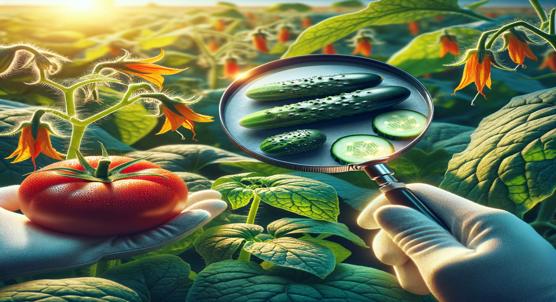
 23rd July, 2024
| Greg Howard
23rd July, 2024
| Greg Howard
Assessing Fluoxapiprolin Residues and Risks in Cucumber and Tomato Crops
Anand Agricultural University's study on fluoxapiprolin in cucumber and tomato shows rapid dissipation of residues, posing minimal consumer risk when good practices are followed. Proposed pre-harvest intervals ensure food safety and environmental protection.
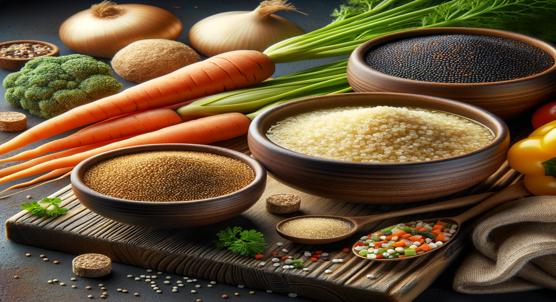
 23rd July, 2024
| Jenn Hoskins
23rd July, 2024
| Jenn Hoskins
Creating Healthy, Low-Sugar Soups Using Foxtail, Barnyard, and Kodo Millets
Periyar University optimized a millet soup mix using foxtail, barnyard, and kodo millets, enhancing its health benefits. The mix boasts high fiber, strong antioxidants, and low glycemic index, making it ideal for gut health and diabetes management.

 22nd July, 2024
| Jenn Hoskins
22nd July, 2024
| Jenn Hoskins
Comparing a Single Dose of Two Boswellia Supplements in Healthy Volunteers
A study from Ulm University found that micellar Boswellia serrata extracts greatly boost bioavailability but don't improve anti-inflammatory effects compared to native extracts. This highlights the complexity of Boswellia's therapeutic properties beyond just absorption rates.

 22nd July, 2024
| Jenn Hoskins
22nd July, 2024
| Jenn Hoskins
Xanthohumol from Hops Fights Gout-Related Bone Damage in Arthritis
Researchers have found that Xanthohumol, a compound from hops, shows promise in treating gouty arthritis and bone damage. It reduces inflammation and promotes bone health, offering a potential new treatment for gout, especially for patients with other chronic conditions.
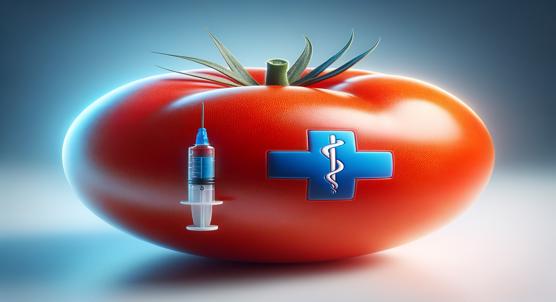
 21st July, 2024
| Jim Crocker
21st July, 2024
| Jim Crocker
Tomato and Lycopene Intake Linked to Lower Mortality in Adults with Diabetes
Higher consumption of tomatoes and lycopene is linked to reduced all-cause and cancer mortality in adults with diabetes, according to a study by Shandong University. Antioxidant-rich foods like tomatoes may help manage diabetes and lower associated health risks.
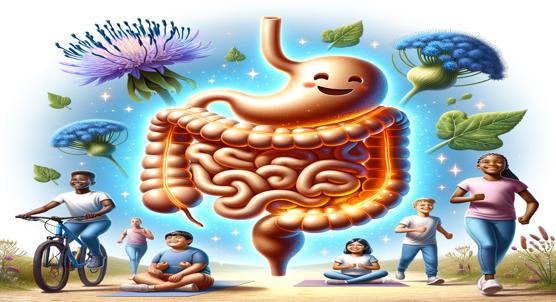
 21st July, 2024
| Greg Howard
21st July, 2024
| Greg Howard
Boosting Gut Health with Inulin in Children with Obesity
Recent research suggests that prebiotic inulin can improve gut health and metabolic outcomes in obese children by enhancing beneficial gut bacteria. This study highlights the potential of dietary interventions to manage childhood obesity through gut microbiota modulation.

 20th July, 2024
| Greg Howard
20th July, 2024
| Greg Howard
How Licorice and Honey Help Improve Chronic Fatigue Syndrome
Ningxia Medical University's study reveals that honey processing enhances licorice's immune-boosting properties, validating traditional Chinese medicine. Honey-fried licorice improves key immune indicators and shows superior efficacy in treating chronic fatigue syndrome.
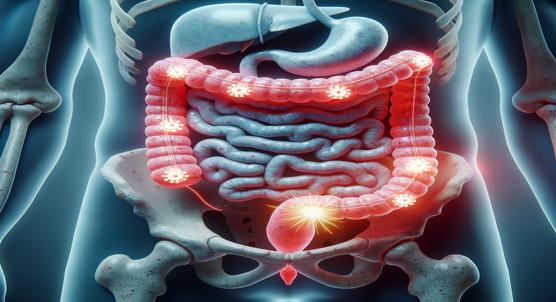
 20th July, 2024
| Jim Crocker
20th July, 2024
| Jim Crocker
Healing and Gut Health Benefits of Ubiquinol in Radiation-Damaged Intestines
Ubiquinol, a potent antioxidant, shows promise in protecting against radiation-induced intestinal damage and restoring gut microbiota balance, according to a study by Cairo University. This could improve the quality of life for cancer patients undergoing radiotherapy.

 20th July, 2024
| Greg Howard
20th July, 2024
| Greg Howard
How Dietary Zinc Affects Gut Health in Pregnant Cows and Newborn Calves
A study by the University of Pennsylvania reveals that high dietary zinc has minimal impact on the microbiota and antibiotic resistance genes of gestating cows and their newborn calves, suggesting current zinc supplementation levels may suffice for optimal health.

 20th July, 2024
| Jenn Hoskins
20th July, 2024
| Jenn Hoskins
Farm Practices and Species Variety Linked to Higher Tuberculosis Risk on Farms
A study by Universidad de León reveals that older cattle, larger herds, fragmented farms, and wildlife presence increase TB risk in Western Spain's cattle farms. Targeted biosecurity measures can help manage and reduce this risk, aiding in TB eradication efforts.
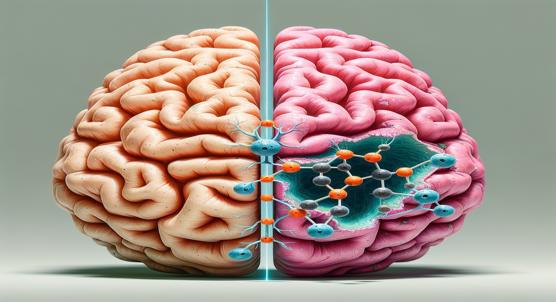
 19th July, 2024
| Jim Crocker
19th July, 2024
| Jim Crocker
Schisandrin B Restores Immune Balance in Brain Cells Using miR-124
Schisandrin B from Schisandra chinensis shows promise in reducing neuroinflammation by shifting microglia from a pro-inflammatory to an anti-inflammatory state via miR-124, potentially offering new treatments for neuropsychiatric and neurodegenerative disorders.

 19th July, 2024
| Jim Crocker
19th July, 2024
| Jim Crocker
Stem Cell Therapy with Saffron Compound Promotes Uterine Repair
Researchers at Nanjing University found that combining endometrial cells and hydroxysafflor yellow A significantly improved blood supply and fertility in rats with severe uterine injuries, offering a promising new treatment for intrauterine adhesions in women.
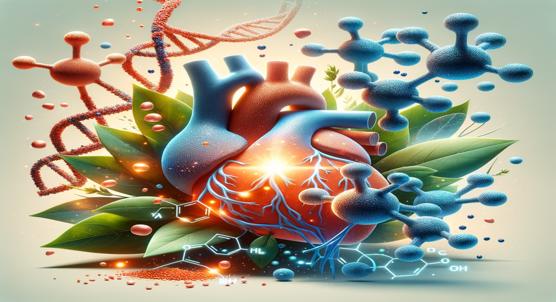
 18th July, 2024
| Greg Howard
18th July, 2024
| Greg Howard
Natural Compound Reduces Heart Inflammation by Blocking Key Protein Interactions
Researchers at Wenzhou Medical University found that Schisandrin B (Sch B) can reduce heart inflammation and tissue remodeling by blocking a key signaling pathway. This discovery offers promising new treatments for heart failure by targeting inflammation at the molecular level.
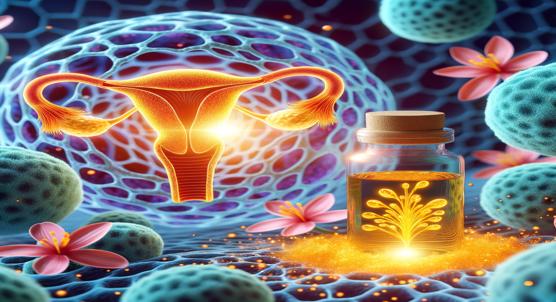
 18th July, 2024
| Jenn Hoskins
18th July, 2024
| Jenn Hoskins
Stem Cell Therapy with Saffron Extract Promotes Uterine Healing
Researchers at Nanjing Drum Tower Hospital found that combining endometrial perivascular cells with hydroxysafflor yellow A significantly enhances uterine repair and fertility in rats, offering a promising new treatment for intrauterine adhesions and related infertility.
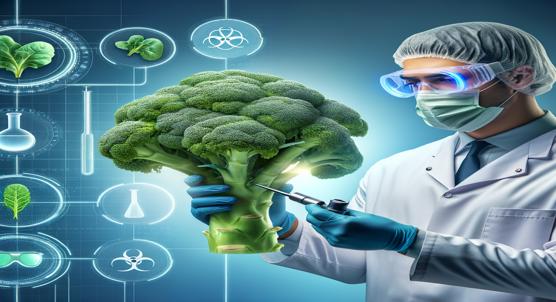
 18th July, 2024
| Greg Howard
18th July, 2024
| Greg Howard
Ensuring Safe Insecticide Levels in Broccoli Using Advanced Testing Methods
Dr. YS Parmar University's study on broccoli shows that using the QuEChERS method and LC-MS/MS, residues of three insecticides diminish quickly and pose no dietary risk. This research supports safe pesticide use and offers guidelines for regulatory authorities.
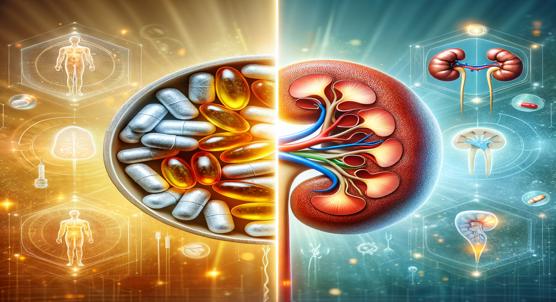
 18th July, 2024
| Jim Crocker
18th July, 2024
| Jim Crocker
Can Nano-Curcumin Pills Safely Prevent Kidney Damage from Cancer Treatment?
A clinical trial found that nano-curcumin, despite its antioxidant properties, was not effective in preventing kidney damage caused by the chemotherapy drug cisplatin. More research with varied doses is needed to find protective strategies for cancer patients.

 18th July, 2024
| Jim Crocker
18th July, 2024
| Jim Crocker
Discovery of New Natural Compounds with Cancer-Fighting Potential
Tokyo University researchers have identified 139 new steroidal glycosides from various plants, showing promising anti-cancer properties with selective toxicity towards tumor cells. This study highlights the potential of natural compounds in developing novel cancer therapies.

 17th July, 2024
| Jenn Hoskins
17th July, 2024
| Jenn Hoskins
How Exercise and Hawthorn Affect Pain Thresholds in Alzheimer's Research
Recent research suggests that a combination of resistance training, swimming, and hawthorn extract can significantly increase pain thresholds in Alzheimer's disease models, potentially offering a holistic approach to managing pain in patients.

 17th July, 2024
| Jenn Hoskins
17th July, 2024
| Jenn Hoskins
Basil Leaf Capsules to Ease Menopausal Symptoms: A Triple-Blind Clinical Study
A study from Mashhad University found that Ocimum basilicum leaf extract significantly reduces menopausal symptoms with minimal side effects, offering a promising alternative to traditional chemical treatments. Further research is needed to confirm these findings.
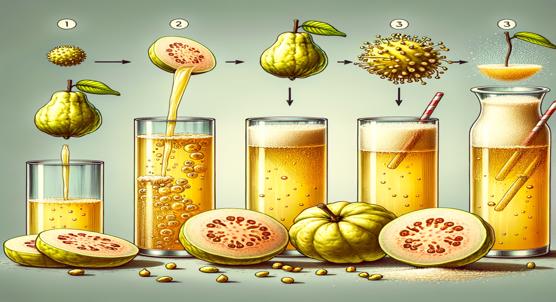
 17th July, 2024
| Jim Crocker
17th July, 2024
| Jim Crocker
Boosting Vitamin B12 in Guava Juice Through Lactic Acid Fermentation
Researchers at Sharda University have developed a vitamin B12-rich, probiotic guava juice using Levilactobacillus brevis. This fermentation method boosts nutritional value and offers a natural way to combat B12 deficiency, with added benefits from antioxidants and probiotics.
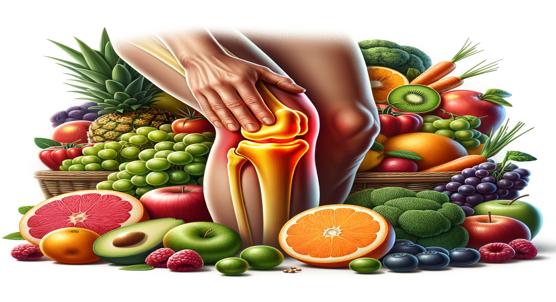
 17th July, 2024
| Jim Crocker
17th July, 2024
| Jim Crocker
Link between Antioxidant-Rich Diet and Knee Osteoarthritis: A Study
A study by Zabol University found that a diet high in antioxidants significantly lowers the risk of knee osteoarthritis. Individuals with the highest antioxidant intake had a 71% lower chance of developing KOA, suggesting diet as a potential preventive strategy.

 16th July, 2024
| Jenn Hoskins
16th July, 2024
| Jenn Hoskins
Understanding How Astragalus Herb Helps Treat Ulcerative Colitis
Astragalus membranaceus, a traditional Chinese herb, shows promise in treating ulcerative colitis by reducing inflammation and oxidative stress. This alternative therapy could offer new hope for patients with fewer side effects compared to conventional treatments.
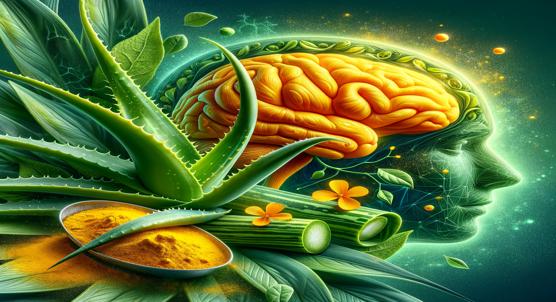
 16th July, 2024
| Jim Crocker
16th July, 2024
| Jim Crocker
Aloe Vera and Curcumin Nanoparticles Show Promise for Alzheimer's Treatment
Aloe vera-coated curcumin nanoparticles show promise in treating Alzheimer's by improving memory, reducing oxidative stress, and mitigating brain pathology in mice. This innovative approach enhances curcumin's bioavailability, offering a potential breakthrough in AD therapy.

 15th July, 2024
| Jenn Hoskins
15th July, 2024
| Jenn Hoskins
Enhanced Brain Protection with Dual-Modified Crocetin Nanoliposomes
Researchers from Zhejiang University of Technology developed a new crocetin-loaded nanoliposome for targeted brain delivery, showing promise in treating depression by overcoming solubility and bioavailability issues, potentially offering a more effective and safer therapy.

 15th July, 2024
| Jenn Hoskins
15th July, 2024
| Jenn Hoskins
Benefits of Agave Supplement on Growth, Health, and Immunity in Chickens
A study by the University of Guanajuato found that a cobiotic made from Agave fructans and turmeric can improve growth, immune function, and gut health in broiler chickens, offering a promising alternative to antibiotic growth promoters.

 14th July, 2024
| Jim Crocker
14th July, 2024
| Jim Crocker
Health Benefits of Various Angelica and Chuanxiong Extracts
A study by Shandong University reveals that a 2:1 extract of Angelica sinensis and Chuanxiong rhizoma, using water and ethanol, shows strong antioxidant and anti-inflammatory effects, offering potential for treating inflammatory conditions.
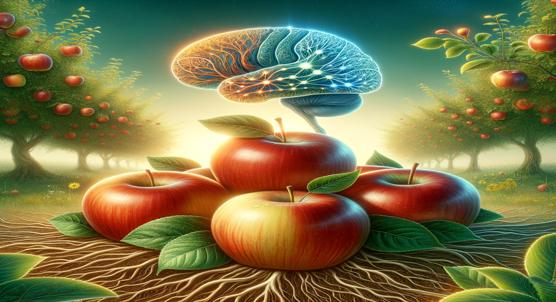
 14th July, 2024
| Jenn Hoskins
14th July, 2024
| Jenn Hoskins
Apple Compounds Improve Memory and Gut Health Through the Gut-Brain Connection
Apple polysaccharides (AP) may help combat aging by improving memory, reducing inflammation, and enhancing gut health in aging mice. This study suggests AP could be a promising natural intervention to extend healthspan and tackle age-related diseases.
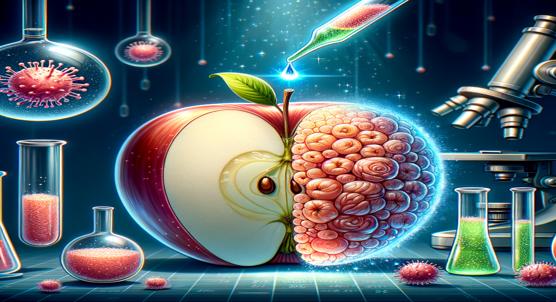
 14th July, 2024
| Jenn Hoskins
14th July, 2024
| Jenn Hoskins
Apple Extract Boosts Skin Cell Growth and Collagen Production in Lab Studies
Recent research from Aomori University reveals that apple pomace extract boosts skin fibroblast growth and collagen production, enhancing skin hydration and resilience. This study highlights the potential of apple pomace as a sustainable, anti-aging skincare ingredient.

 14th July, 2024
| Greg Howard
14th July, 2024
| Greg Howard
How Overlapping Territories of Possums Affect Disease Spread
A study on brushtail possums in New Zealand reveals that adult males, with higher home range overlaps, play a key role in TB spread. Insights on age, sex, and density-related overlaps can help develop targeted control strategies to curb bovine TB in cattle industries.

 13th July, 2024
| Jim Crocker
13th July, 2024
| Jim Crocker
Dietary Supplement Boosts Health and Metabolism in Older Laying Birds
Silymarin, a natural liver-protective compound, improved egg production and feed efficiency in late-stage laying hens. The study found that 500 mg/kg of silymarin optimized liver health and lipid metabolism, suggesting it as a promising supplement for poultry.
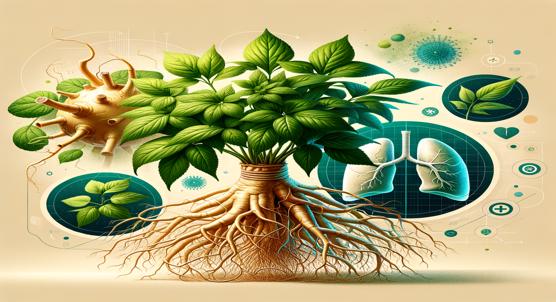
 13th July, 2024
| Jenn Hoskins
13th July, 2024
| Jenn Hoskins
How Ginseng Compound Helps Protect Lungs from Sepsis Damage
Ginsenoside Rg1 from Ginseng shows promise in treating sepsis-induced acute lung injury by reducing inflammation and cell death in lung tissues. This study reveals its potential to improve survival rates by targeting the AKT1 pathway and lowering pro-inflammatory cytokines.
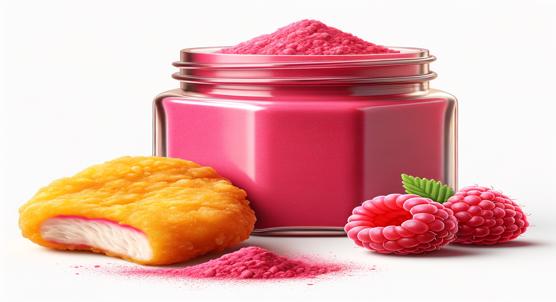
 13th July, 2024
| Jim Crocker
13th July, 2024
| Jim Crocker
Raspberry Powder Enhances pH, Color, and Shelf Life of Packaged Chicken Nuggets
Encapsulated raspberry powder (RP) enhances the color and stability of chicken nuggets, counteracting phosphate's pH-raising effects. The study shows RP improves redness and shelf life, offering a natural, healthier additive for meat products.

 13th July, 2024
| Jim Crocker
13th July, 2024
| Jim Crocker
Goji Berry Nanoparticles Protect Vision by Preventing Cell Death in the Retina
Researchers have developed PLBP nanoparticles to combat vision loss by reducing oxidative stress and inflammation in retinal cells. This innovative approach activates the NRF2 pathway and inhibits microglial activity, offering new hope for treating retinal diseases.
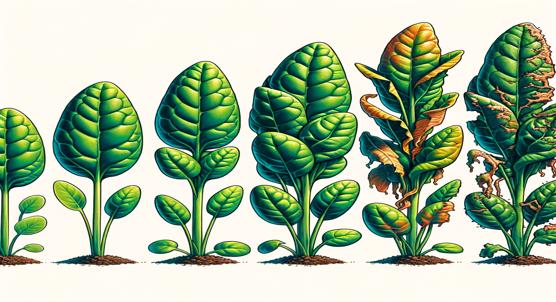
 13th July, 2024
| Jim Crocker
13th July, 2024
| Jim Crocker
How Baby Spinach Bacterial Quality Changes Over Time
Cornell research reveals that baby spinach from Salinas, CA, has higher bacterial concentrations than Yuma, AZ. Preharvest temperatures also impact bacteria levels. These findings could guide region-specific quality management to enhance consumer safety.
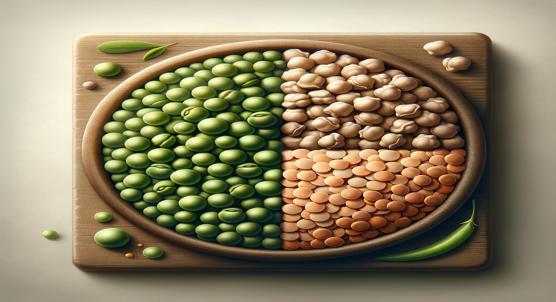
 12th July, 2024
| Jim Crocker
12th July, 2024
| Jim Crocker
Understanding Allergies to Peas, Chickpeas, Lentils, and More
A shift to vegan diets has increased allergic reactions to legumes like beans, peas, and chickpeas, beyond common allergens like peanuts. A study highlights the need for better diagnostics and awareness of cross-reactions and geographic differences in legume allergies.
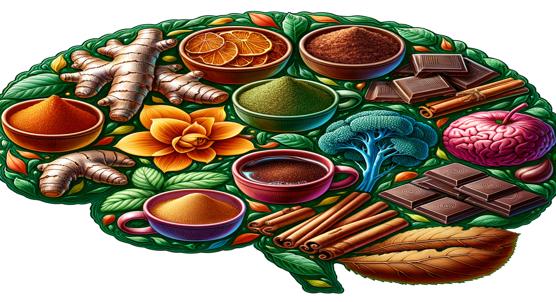
 12th July, 2024
| Greg Howard
12th July, 2024
| Greg Howard
Brain-Boosting Benefits of Natural Compounds for Alzheimer's-like Symptoms
A study from Hamadan University shows that Dehydroepiandrosterone (DHEA) and Hericium erinaceus mushroom extract can mitigate Alzheimer's-like symptoms in rats by boosting antioxidant defenses and BDNF levels, offering a promising therapeutic approach for AD.
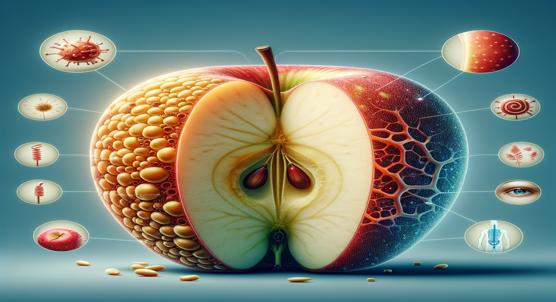
 12th July, 2024
| Jenn Hoskins
12th July, 2024
| Jenn Hoskins
Understanding Apple Allergies: How Polyphenols Interact with Allergenic Proteins
A study from the University of Hamburg reveals that phenolic compounds in apples can affect the allergen Mal d 1, potentially reducing allergic reactions in people with birch pollen allergies. This insight could lead to breeding apples with lower allergenic potential.
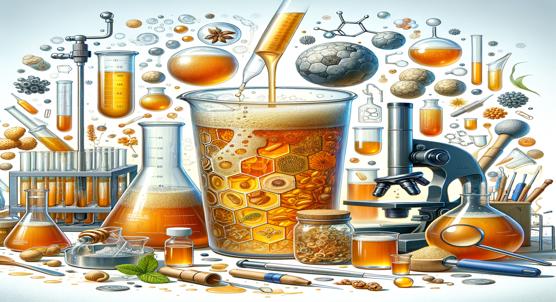
 12th July, 2024
| Jim Crocker
12th July, 2024
| Jim Crocker
Extracting Antioxidants from Kombucha By-Product Using Various Methods
Researchers from the University of São Paulo found that discarded SCOBY from Kombucha production is a rich source of antioxidants and phenolic compounds, offering a sustainable way to repurpose this waste and enhance the economic and environmental benefits of Kombucha.

 11th July, 2024
| Jenn Hoskins
11th July, 2024
| Jenn Hoskins
Health Risks from Toxic Metals in Sweet Lime and Oranges Grown with Wastewater
A study by Usak University reveals that citrus fruits irrigated with sewage water have significantly higher levels of toxic metals compared to those watered with fresh water. These findings underscore the need for safe irrigation practices to safeguard public health.
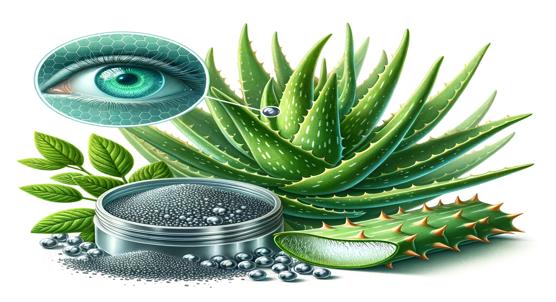
 11th July, 2024
| Jenn Hoskins
11th July, 2024
| Jenn Hoskins
Effective Eye Infection Treatments Using Aloe Vera and Zinc-Oxide Nanoparticles
A study by Al-Qasim Green University finds that a novel treatment combining ithmid kohl and zinc-oxide nanoparticles effectively combats bacterial endophthalmitis, outperforming traditional antibiotics and offering hope against antibiotic-resistant infections.

 9th July, 2024
| Jenn Hoskins
9th July, 2024
| Jenn Hoskins
Health Risks from Contaminated Green Leafy Vegetables in Ambagarh Chowki
A study in India found that leafy vegetables, particularly spinach, contain high levels of harmful elements like lead and arsenic, exceeding WHO limits. This poses significant health risks, highlighting the need for stricter safety measures in agriculture.

 9th July, 2024
| Greg Howard
9th July, 2024
| Greg Howard
Healing Potential of Cabbage and Radish Extracts on Prediabetes
A study from Universidad Autónoma de Yucatán reveals that green cabbage and radish extracts can reduce weight gain, improve glucose regulation, and protect the pancreas and liver in prediabetic rats, highlighting their potential in managing Type 2 diabetes.

 9th July, 2024
| Jenn Hoskins
9th July, 2024
| Jenn Hoskins
How Temperature and Stirring Affect Bacterial Growth in Raw Cow Milk
A study reveals that temperature and agitation significantly boost biofilm formation by harmful bacteria in raw cow milk, increasing contamination risk. These insights are crucial for developing better safety measures to mitigate raw milk-related health hazards.
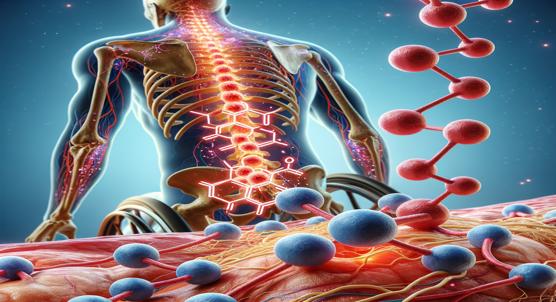
 7th July, 2024
| Jim Crocker
7th July, 2024
| Jim Crocker
Ginsenoside Rg1 Helps Heal Spinal Cord Injuries by Boosting Blood Vessel Growth
Research from Soochow University reveals that ginsenoside Rg1, a key ginseng compound, promotes blood vessel growth and improves spinal cord injury recovery by regulating astrocytes via the JAK2/STAT3 pathway, offering promising therapeutic potential.
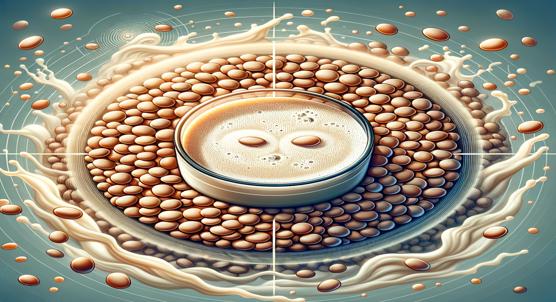
 7th July, 2024
| Jenn Hoskins
7th July, 2024
| Jenn Hoskins
Boosting Lentil Protein Quality with Whey Using Complexation and Fermentation
Researchers at Universiti Sains Malaysia have enhanced lentil protein's solubility and digestibility by combining pH-shifting and fermentation with water kefir. This innovative method offers a promising alternative to animal-based proteins, boosting nutritional value and flavor.
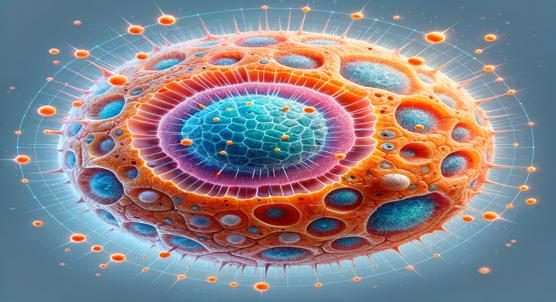
 7th July, 2024
| Jim Crocker
7th July, 2024
| Jim Crocker
Healing Power of NEO400 in Treating UV-Damaged Skin
Researchers at USC have developed NEO400, a compound combining linoleic acid and perillyl alcohol, which repairs UV-induced skin damage. Unlike Aloe vera, NEO400 accelerates healing and prevents damage, offering a promising post-exposure treatment to mitigate long-term UV risks.

 7th July, 2024
| Jim Crocker
7th July, 2024
| Jim Crocker
Ginseng Supplements and Heart Health: A Study on Benefits and Ideal Dosage
Researchers from Golestan University are reviewing the potential of ginseng to modify cardiovascular risk factors like lipid profiles, blood pressure, and inflammation. This study could offer natural strategies to complement existing treatments for heart diseases.

 7th July, 2024
| Jim Crocker
7th July, 2024
| Jim Crocker
How Eating Rosemary Affects Brain Activity in Healthy People
Recent research from İstanbul Nişantaşı University shows that consuming rosemary extract can boost cognitive function in the short term. EEG data revealed increased brain activity in specific frequency bands, supporting rosemary's traditional and antioxidant benefits.

 7th July, 2024
| Jenn Hoskins
7th July, 2024
| Jenn Hoskins
Elemental Composition and Health Risk of Deep-Sea Fish in the Levantine Basin
A study by Mersin University found varying levels of metal contamination in deep-sea fish from Mersin Bay, with arsenic posing the highest health risk. Continuous monitoring is essential to ensure seafood safety.

 7th July, 2024
| Jenn Hoskins
7th July, 2024
| Jenn Hoskins
Understanding How Eye Cells Heal the Cornea
Researchers at Shandong First Medical University have uncovered key genes and pathways that help limbal stem cells regenerate the corneal epithelium after injury, paving the way for new treatments for vision impairments and corneal blindness.
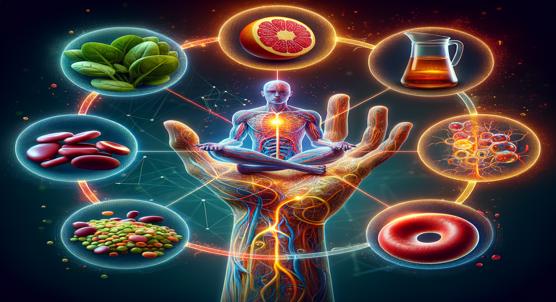
 7th July, 2024
| Greg Howard
7th July, 2024
| Greg Howard
How Dietary Iron Affects Semen Quality Through Inflammation and Oxidative Stress
A study by Huazhong Agricultural University reveals that current iron supplementation guidelines for boars are inadequate, affecting their semen quality. The research suggests revising these guidelines to improve reproductive performance and economic outcomes in swine production.
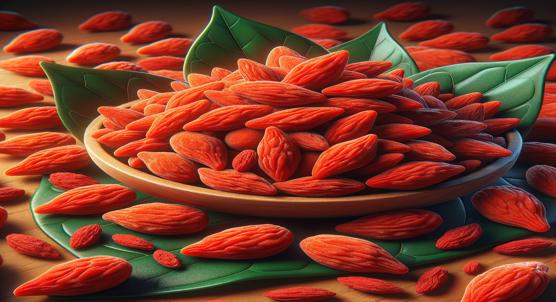
 6th July, 2024
| Jenn Hoskins
6th July, 2024
| Jenn Hoskins
Nutritional Benefits and Health Properties of Goji Berries
A University of Belgrade study reveals goji berries from Serbia are rich in dietary fiber, protein, and beneficial fatty acids. They exhibit strong antioxidant and mild antimicrobial properties, highlighting their potential in food, nutraceutical, and pharmaceutical industries.
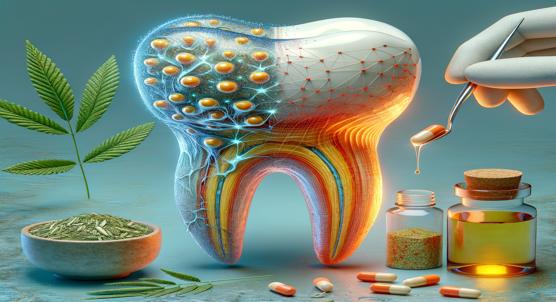
 6th July, 2024
| Greg Howard
6th July, 2024
| Greg Howard
How Herbal Solutions Affect Tooth Root Surface Using 3D Texture Analysis
Researchers at Al-Azhar University found that Moringa oleifera extract can alter dentin surface roughness similarly to conventional chemicals in root canal treatments. This suggests herbal alternatives could offer safer, effective options for endodontic procedures.

 6th July, 2024
| Jim Crocker
6th July, 2024
| Jim Crocker
Plant Compounds Modulating Cell Recycling and Stress for Cancer Treatment
Researchers are exploring plant-based compounds to target autophagy and ER stress in cancer cells. Phytochemicals like curcumin and capsaicin can induce cell death, showing promise in anticancer therapy. However, translating these findings to clinical use remains challenging.
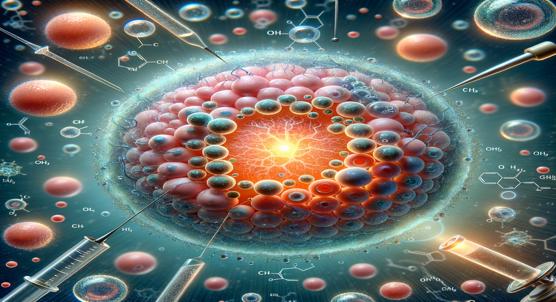
 6th July, 2024
| Greg Howard
6th July, 2024
| Greg Howard
How Salidroside May Protect Eye Cells from Oxidative Stress: A Molecular Study
Researchers at Zunyi Medical University found that Salidroside (SAL), a compound from Rhodiola rosea, significantly reduces oxidative stress and cell death in retinal ganglion cells. This discovery offers promising new treatment avenues for glaucoma and related eye diseases.

 6th July, 2024
| Jim Crocker
6th July, 2024
| Jim Crocker
Factors Influencing Food Choices for Young Children in Rural Areas
A study by Hawassa University reveals low consumption of animal source foods among young children in rural Ethiopia. Key factors like household food security, livestock ownership, maternal education, and agricultural diversity significantly influence dietary practices.
